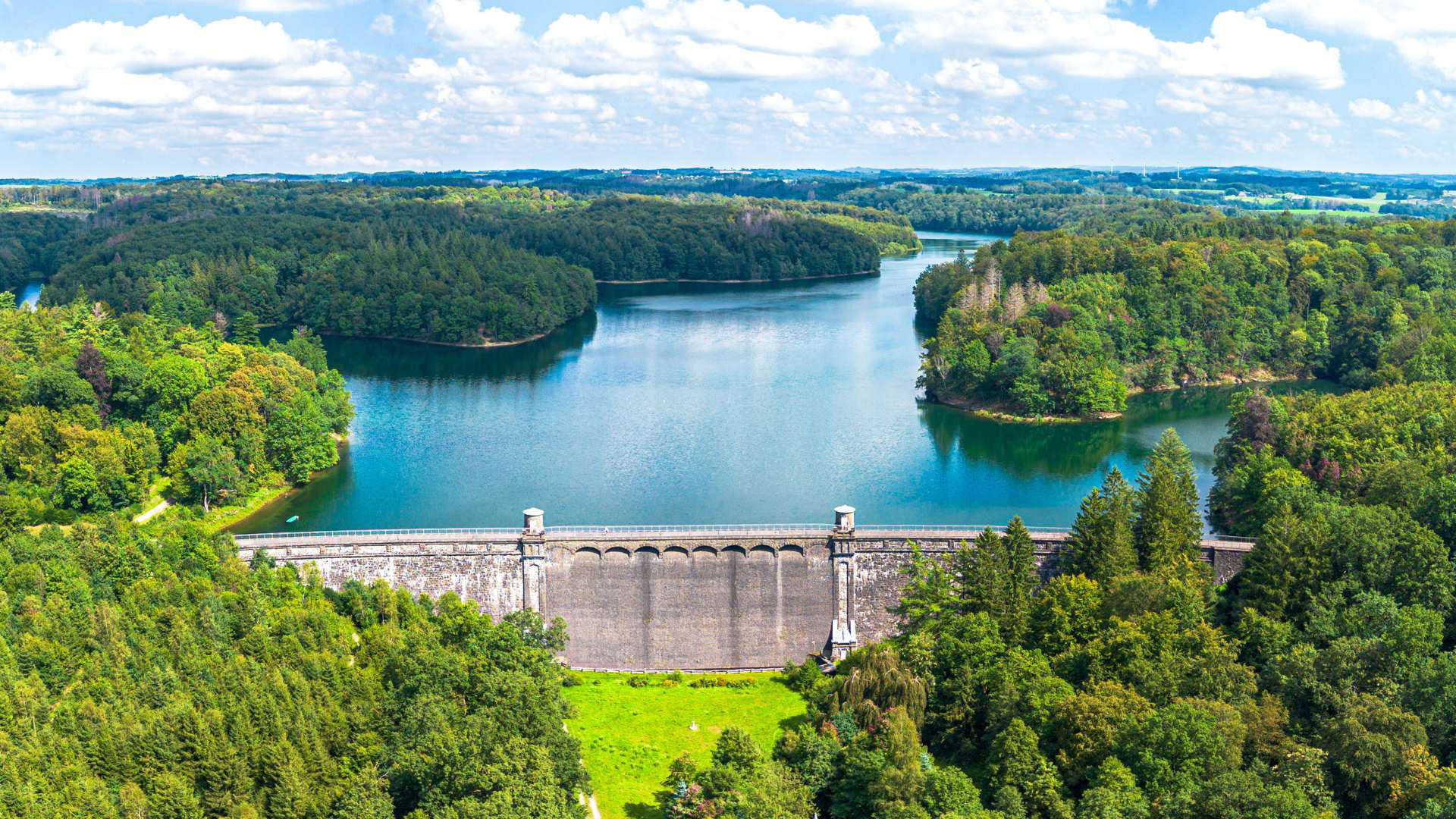
Predicting water supply and demand
Operating reservoirs using AI
- von Juliana Fischer
- 16.04.2024
Floods, droughts, heatwaves: Climate change poses increasing challenges for streamflow forecasting and reservoir management. Reservoirs play a crucial role in flood protection and during periods of drought. In order to adapt them to climate change, researchers at the University of Duisburg-Essen are developing a prediction-based control system for reservoirs based on artificial intelligence. The PROWAVE project is being funded by the Bundesstiftung Umwelt with 348,000 euros over the next three years.
The weather events caused by climate change are difficult to foresee and pose a major challenge for the operation of reservoirs and their catchment areas," explains Prof Dr André Niemann from the Institute of Hydraulic Engineering and Water Resources Management at the University of Duisburg-Essen (UDE). "Until now, reservoirs have been managed by a series of river gauges. However, the decisions made on this basis are reactive and slow."
In the future, thanks to technological advances, artificial intelligence (AI) methods will support reservoir operators. To this end, special processes such as LSTM (Long Short-Term Memory) networks will enable efficient control strategies. This creates tools that utilise the increasing forecast information in a targeted manner. In combination with modern data analysis tools, they enable proactive control of water distribution systems based on reliable forecasts of water demand and water supply. "Until now, this forecasting was extremely difficult, as every simulated physical process had to be known. Artificial intelligence methods now make the difference," says Gregor Johnen, lead engineer in Prof Niemann's team, and explains further: "For example, neural networks and ensemble methods can use the real-time data and learn from it to simulate complex processes and improve the predictability of extreme weather events through the learned process understanding - up to three months in advance".
The aim of the project is to develop a prototype model for reservoir management and the supply of water for communities and ecosystems. It is being developed using the example of the Harz waterworks' interconnected reservoir compound. This integrates the researchers' predictions into a more complex optimisation model which is provided by the KISTERS AG based in Aachen. "This kind of proactive control of our systems enables us to react flexibly and at an early stage to any future conflicts between the drinking water supply and the other system services provided by the reservoirs," says Dr Alexander Hutwalker, Coordinator of the Research and Development Department at Harzwasserwerke.
In the long term, the researchers and their associated partners, the Ruhr- and Wupperverband, would like to use the prototype to achieve the transition to smart reservoir management that meets the requirements of climate change.
Further Information
Prof. Dr.-Ing. André Niemann, Institut für Wasserbau und Wasserwirtschaft, Tel. 0201 183 2225, andre.niemann@uni-due.de
Gregor Johnen M.Sc., Institut für Wasserbau und Wasserwirtschaft, Tel. 0201 183 4303, gregor.johnen@uni-due.de
